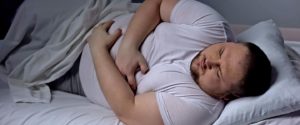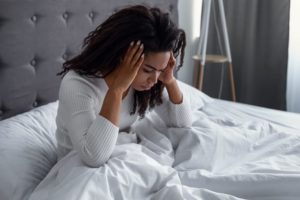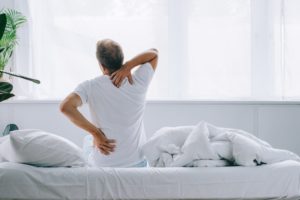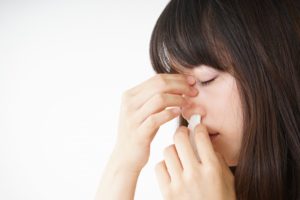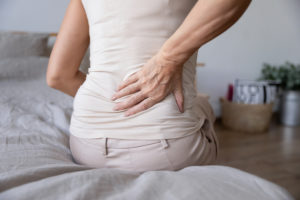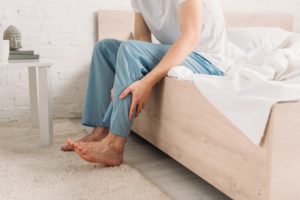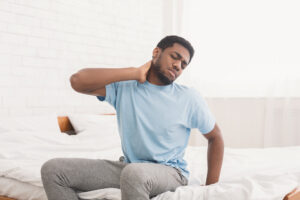Can You Go to Sleep After Hitting Your Head?
Everything You Need to Know About Concussions and Sleep
A blow to the head can cause a concussion or a more serious traumatic brain injury . About 29% of people experience a concussion at some point in their lives . Many U.S. adults believe that a person must stay awake for at least 24 hours after a concussion , but research shows that, once the person has been examined by a doctor, sleep is an important part of healing . Learn how to identify a concussion, whether you can go to sleep after hitting your head, and when to see a doctor.
Is It Safe to Sleep If You May Have a Concussion?
Common wisdom used to be that if a person had a concussion, they had to stay awake for 24 hours in order to avoid going into a coma . However, this claim is not true. Newer research suggests that sleeping after a concussion is not dangerous.
If a person hits their head and thinks they may have a concussion, they should undergo a medical evaluation right away rather than go to sleep. But once a healthcare professional has conducted a full assessment, sleeping can help with the healing process. The Centers for Disease Control and Prevention (CDC) recommends that people sleep at night and take daytime naps where necessary to help healing in the days after a concussion.
That being said, it is harder to notice changes in a person’s mental state when they are asleep. Depending on the case, doctors will decide whether it’s better to let the person sleep uninterrupted or whether it’s necessary to wake them every few hours during the first day and night to make sure there are no new symptoms .
Know the Signs of a Head Injury
In the minutes and hours after a head injury, a person who has a concussion may exhibit the following symptoms:
- Confusion
- Loss of consciousness
- Memory loss of what happened just before, during, and/or just after the injury
- Headache
- Dizziness
- Vertigo
- Trouble balancing
- Lack of awareness of surroundings
- Nausea
- Vomiting
- A vacant stare
- Slurred or slow talking
- Trouble focusing
- Feeling or acting disoriented
- Emotions that don’t match the situation
After a head injury, a person with a concussion can develop more symptoms later that day or in the following days. These symptoms may include mood changes, trouble thinking, light sensitivity, noise sensitivity, and disrupted sleep. In rare cases, a person may experience eye-related troubles, like temporary partial or total blindness and involuntary eye movements.
Is Sleeping A Lot Normal After Hitting Your Head?
People with concussions often feel extra tired and require more sleep than usual as they heal . Getting adequate sleep after a concussion is important, since research has found that people who get less sleep after a concussion take longer to recover .
Concussions sometimes lead to sleep disturbances that can get in the way of obtaining adequate sleep. After a blow to the head, a person may have trouble falling asleep or find themselves waking up throughout the night. In more serious cases, they may even develop a sleep disorder. Addressing and treating any sleep problems after concussion can help reduce the risk of developing additional problems such as depression .
Speaking to a Doctor After Hitting Your Head
If you experience a head injury, even if it doesn’t seem serious, seek a medical opinion. Eighty percent or more of people who have a concussion do not recognize it for what it is. Not all concussions cause a loss of consciousness. Additionally, sometimes concussion symptoms don’t show up until later. A trained professional knows what symptoms to look for and what questions to ask.
Doctors generally begin diagnosing a concussion by asking questions about how the head injury occurred. They also ask questions to assess a person’s mental status and determine if memory or concentration have been affected. Then, a neurological exam is conducted and may involve checking a person’s pupil size, eye movements, ability to feel sensations, coordination, and muscle strength. In some cases, a doctor may also order brain imaging in the form of a computed tomography (CT) scan or magnetic resonance imaging (MRI). In the weeks following the accident, it’s a good idea to visit the doctor again if any new symptoms appear.
Medical Disclaimer: The content on this page should not be taken as medical advice or used as a recommendation for any specific treatment or medication. Always consult your doctor before taking a new medication or changing your current treatment.

Still have questions? Ask our community!
Join our Sleep Care Community — a trusted hub of sleep health professionals, product specialists, and people just like you. Whether you need expert sleep advice for your insomnia or you’re searching for the perfect mattress, we’ve got you covered. Get personalized guidance from the experts who know sleep best.
References
11 Sources
-
Evans, R., & Whitlow, C. (2022, February 22). Acute mild traumatic brain injury (concussion) in adults. UpToDate.
https://www.uptodate.com/contents/acute-mild-traumatic-brain-injury-concussion-in-adults -
Daugherty J, DePadilla L, Sarmiento K, Breiding MJ. Self-Reported Lifetime Concussion Among Adults: Comparison of 3 Different Survey Questions. J Head Trauma Rehabil. 2020 Mar/Apr;35(2):E136-E143.
https://pubmed.ncbi.nlm.nih.gov/31479084/ -
UPMC. Concussions: How Knowledgeable Are Americans?
https://share.upmc.com/2015/12/concussions-how-knowledgeable-are-americans/ -
Centers for Disease Control and Prevention. What to do After a Concussion.
https://www.cdc.gov/heads-up/guidelines/recovery-from-concussion.html -
Wickwire EM. Why sleep matters after traumatic brain injury. J Clin Sleep Med. 2020 Dec 17;16(S1):5-6.
https://pubmed.ncbi.nlm.nih.gov/33054962/ -
UAMS Health. Is it Safe to Sleep if You Have a Concussion?
https://uamshealth.com/medical-myths/is-it-safe-to-sleep-if-you-have-a-concussion/ -
A.D.A.M. Medical Encyclopedia [Internet]. (2024, June 13). Concussion in adults – discharge. MedlinePlus.
https://medlineplus.gov/ency/patientinstructions/000126.htm -
KidsHealth. Is It OK for Kids to Sleep After a Possible Concussion?
https://kidshealth.org/en/parents/sleep-concussion.html -
Evans, R., & Furman, J. (2024, September 10). Sequelae of mild traumatic brain injury. UpToDate.
https://www.uptodate.com/contents/sequelae-of-mild-traumatic-brain-injury -
Hoffman NL, O’Connor PJ, Schmidt MD, Lynall RC, Schmidt JD. Relationships between Post-Concussion Sleep and Symptom Recovery: A Preliminary Study. J Neurotrauma. 2020 Apr 15;37(8):1029-1036.
https://pubmed.ncbi.nlm.nih.gov/31774024/ -
https://pubmed.ncbi.nlm.nih.gov/31774024/ Brett BL, Meier TB, Savitz J, Guskiewicz KM, McCrea MA. Research Letter: Sleep Mediates the Association Between Prior Concussion and Depressive Symptoms. J Head Trauma Rehabil. 2021 Jul-Aug 01;36(4):E284-E288.
https://pubmed.ncbi.nlm.nih.gov/33656485/

